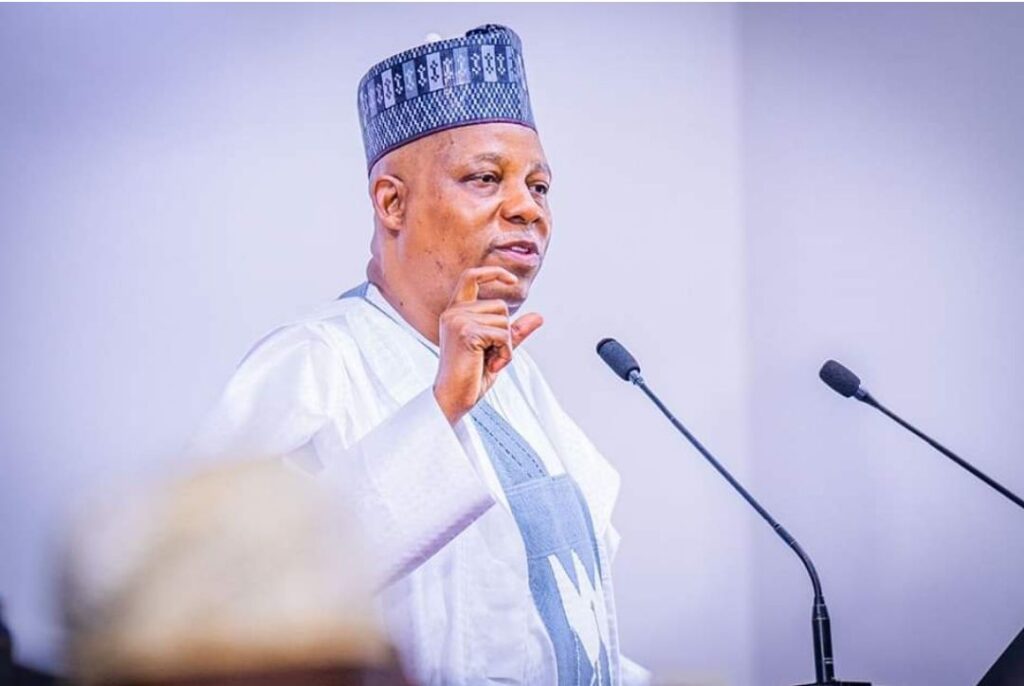Vice-President Kashim Shettima says the recent global trade disruptions and the resurgence of protectionism are warnings to Nigeria to begin to grow what its people eat and produce what they trade.
Speaking at the Presidential Villa, Abuja, during the signing ceremony of the financing agreement for the Value Chain Programme in Northern Nigeria (VCN), Shettima described the initiative as a product of critical thinking about the economic reality of the northern region.
He said with the signing of the agreement, the implementation of the $158.15 million VCN project begins immediately to support agriculture value chain development and value addition for farmers in nine states of the northern part of the country.
The initiative is co-funded by the International Fund for Agricultural Development (IFAD), the French Development Agency (AFD), and the government of Nigeria.
According to the Vice President, “it is expected to sustainably reduce poverty, enhance nutrition and better resilience of rural and most vulnerable populations in the nine northern states of Borno, Bauchi, Kano, Katsina, Kebbi, Jigawa, Sokoko, Yobe and Zamfara.
Recalling that the administration recently commenced foundation laying for the construction of Special Agro-Industrial Processing Zones (SAPZs) across Nigeria, the VP said said the VCN programme will feed into the SAPZs, serving as “a steady pipeline of raw materials and ensuring our processors no longer grope for quality inputs.
“This synergy will shift us from exporting raw produce to exporting value-added goods—creating jobs, wealth, and industrial stability,” he added.
Shettima observed that “the recent global trade disruptions and the resurgence of protectionism are loud warnings” to Nigeria to begin to grow what its people eat and produce what they trade.
His words: “The agricultural tariffs and retaliatory postures of global powers like the U.S. and China have rattled commodity chains. For a nation that has long relied on food imports, the message is clear: we must grow what we eat and produce what we trade.
“The VCN answers this call. By making wheat, maize, and animal feed viable for commercial cultivation, and by investing in irrigation, processing, and storage facilities in states like Kebbi and Jigawa, we are not just securing food—we are laying the groundwork for agricultural exports that can rival our oil.
“What makes this programme exceptional is that it targets the underserved: women, youth, persons with disabilities, and returnees. It recognises that peace and prosperity are twin goals—and that in communities scarred by conflict, agriculture is not just a livelihood; it is rehabilitation.”
Earlier, former Senate President, Senator Ahmed Lawan, who spoke on behalf of the National Assembly, commended IFAD, the federal government and other partners for the conception of the programme, describing it as a well-thought-out initiative that will transform the lives and livelihoods of many in the target states and beyond.
@dailytrust


